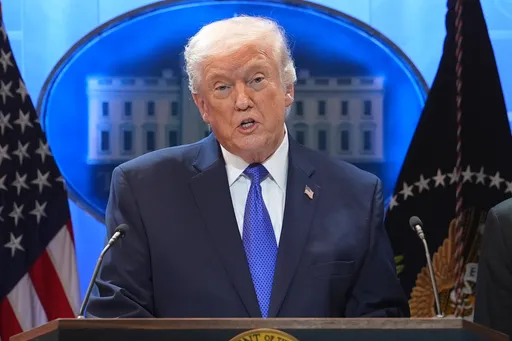When Israel occupied Syria’s Golan Heights during the Arab-Israeli War in 1967, no other country approved of its move. In fact, no other country ever recognised Israel’s claim. Fifty-two years after, the US sets to become the first country to recognise Israel's sovereignty over the Israeli-occupied plateau despite international opposition.
What makes Golan Heights so important?
Golan Heights is a plateau in southwestern Syria that Israel effectively annexed in 1981. For Israel, it has strategic importance due to its location overseeing Lebanon, Jordan, Israel and Syria’s capital Damascus from 60km away, giving Tel Aviv a military advantage over Syria.
Israel has been defending its occupation of the region as a counter effort to Iran, which backed the Syrian regime on the ground in the country’s eight years of war, as well as a way to counter the security threat of Lebanese Hezbollah. Over the years, the Syrian regime has repeatedly tried to reclaim the area back but it failed each time.
Golan Heights is rich in natural resources such as oil and water. Like Israeli occupied-Palestine, Israel has been also claimed the rights to those natural resources. Today, at least one-third of Israel’s water comes from Golan Heights, where it also runs a ski resort.
In 2013, Israel awarded Genie Energy (GOGAS), a parent company of Israel Energy Initiatives Ltd (IEI), rights to drill in Golan Heights despite international opposition. In 2015, Israel claimed a massive discovery of oil in the area, which Israeli officials reportedly believe could supply the country’s oil needs for many years to come.
Why Israel and the US decision didn’t find support?
The US decision didn’t find support for the same reason that no country backed Israel’s occupation except the US; the Israeli occupation of other countries is recognised as being against the international law. The illegality of the decision by Israel was reaffirmed once again by the UN’s Human rights council on March 22.
Two United Nations Security Council resolutions rejected recognising the Golan Heights decision stating: “The acquisition of territory by force is inadmissible, in accordance with the Charter of the United Nations, the principles of international law and relevant Security Council resolutions.”
France once more clarified its position on the issue after the US decision saying that President Donald Trump’s move would violate international law. The UK and Germany have also given similar statements after Trump’s decision.
European Council President Donald Tusk stated that the EU’s position of not recognising Israel’s sovereignty over the area is well known and has not changed.
Turkey also reacted to the decision saying Turkey will take the issue of Golan Heights to the United Nations.
What does the US’ recognition would mean?
Israel has occupied Golan Heights during the period that it also occupied West Bank and East Jerusalem in Palestine.
The occupation has caused the displacement of tens of thousands of Syrians, mainly the Arab Druze minority of Syria. Israel has blocked their return. Similarly to occupied Palestinian territories, Israel followed an expansion policy in Golan Heights too, by building Israeli settlements. As of 2019, an estimated 26,000 Jewish settlers are living in the region, bringing the number of settlers to more than its original residents.
On December 2017, the US declared its decision to recognise Jerusalem as Israel's capital, despite all UN resolutions, international agreements and worldwide objections.
The US move to recognise Golan Heights as Israeli has come as a follow-up to the December 2017 decision, a major shift in the US policy that experts criticised for possibly starting a trend. Indeed, several other countries decided to recognise Jerusalem as the capital of Israel after the US decision.
Just as with the Jerusalem decision, the latest move by the US could lead other countries to take similar steps.
Human Rights Watch (HRW) says Trump’s latest decision would demonstrate a disregard for the protections due to the Syrian population under international humanitarian law.
“President Trump appears poised to drive a wrecking ball through the international law that protects the population of the occupied Golan Heights,” said Eric Goldstein, Deputy Middle East and North Africa Director at HRW.
“If Trump follows through, it may embolden other occupying states to double down on their own land grabs, settlements, and plunder of resources.”























